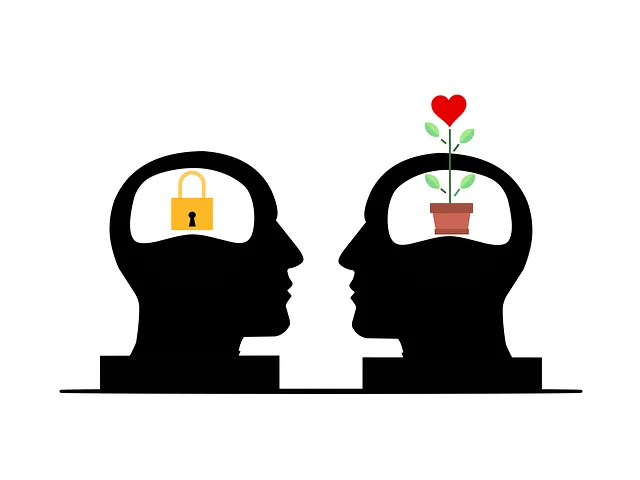Cultural competency in healthcare, exemplified by Golden Kaiser Permanente's model, goes beyond treating symptoms by addressing diverse cultural needs. Their structured visiting hours and Community Outreach Program at the mental health center cater to underserved populations, promoting self-esteem and culturally respectful care. This holistic approach improves patient outcomes, with training that includes case studies, role-playing, and community partnerships. Effective communication bridges understanding gaps, builds trust, and respects individual preferences, leading to positive health outcomes. Key initiatives like Golden Kaiser Permanente's visiting hours provide insights into diverse mental health challenges, shaping policies for better cultural competency in healthcare education.
Cultural competency in healthcare is essential for delivering quality patient care, especially in diverse communities. This article explores the critical role of training and its impact on improving healthcare services. We delve into the significance of understanding cultural nuances and present a case study of the Golden Kaiser Permanente Mental Health Center, which has pioneered effective training programs. Additionally, we offer best practices and emphasize how enhanced communication fosters better patient outcomes, all while considering the unique visiting hours at this renowned center.
- Understanding Cultural Competency in Healthcare: Why It Matters
- Golden Kaiser Permanente Mental Health Center: A Model for Training
- Best Practices for Incorporating Cultural Competency Training
- Enhancing Patient Care Through Effective Communication
Understanding Cultural Competency in Healthcare: Why It Matters

Cultural competency in healthcare is an essential aspect that goes beyond treating symptoms; it’s about understanding and respecting diverse cultural backgrounds, beliefs, and values. This is particularly crucial in a nation as diverse as the United States, where organizations like Golden Kaiser Permanente recognize the impact of cultural sensitivity on patient outcomes. A mental health center, for instance, with visiting hours structured around family dynamics and community support networks, demonstrates this commitment to cultural competency.
Integrating cultural awareness into healthcare delivery improves communication, enhances trust, and promotes better adherence to treatment plans. For example, a deeper understanding of patients’ cultural contexts can aid in the management of mood disorders, as Mental Health Awareness highlights. It also facilitates effective Conflict Resolution Techniques, ensuring that diverse patient populations feel heard, respected, and supported throughout their journey towards healing, whether it’s at a mental health center or any healthcare facility.
Golden Kaiser Permanente Mental Health Center: A Model for Training

The Golden Kaiser Permanente Mental Health Center stands as a beacon of excellence in cultural competency training within the healthcare sector. Known for its comprehensive approach to mental health care, the center has successfully integrated a model that emphasizes community engagement and diverse treatment methodologies. This innovative program includes regular visiting hours designed to facilitate access for underserved populations, reflecting a deep understanding of the importance of cultural sensitivity and accessibility in mental healthcare.
By implementing successful initiatives like its Community Outreach Program, the center promotes self-care practices tailored to different cultural backgrounds, addressing not just symptoms but also fostering self-esteem improvement. This holistic strategy ensures that patients from various communities receive care that respects their unique needs and traditions. The Golden Kaiser Permanente model offers valuable insights into how healthcare providers can enhance their cultural competency, ultimately improving patient outcomes and the overall well-being of diverse communities.
Best Practices for Incorporating Cultural Competency Training

Incorporating cultural competency training into healthcare provider education is a multifaceted process that requires strategic planning and consistent implementation. Best practices involve integrating cultural competency into all levels of training, from initial orientation to ongoing professional development. One effective approach is to design curriculum that reflects diverse communities, their unique health needs, and relevant cultural contexts. This can include case studies, role-playing scenarios, and community partnerships that expose trainees to real-life experiences.
Moreover, creating a supportive learning environment where open dialogue and respectful exchanges are encouraged fosters a deeper understanding of cultural competency. Regular feedback mechanisms and peer discussions help trainees reflect on their own biases and learn from one another. Additionally, leveraging resources like the Golden Kaiser Permanente mental health center visiting hours and public awareness campaigns can provide valuable insights into community-specific mental health challenges and promote positive thinking. Mental Health Policy Analysis and Advocacy also play a crucial role in shaping systems that support cultural competency training, ensuring healthcare providers are equipped to address the diverse needs of their communities.
Enhancing Patient Care Through Effective Communication

Effective communication is a cornerstone of quality patient care, especially within diverse healthcare settings. Cultural competency training equips providers with essential skills to bridge gaps in understanding and build trust between patients from various backgrounds and healthcare teams. By fostering open dialogue, providers can uncover critical cultural nuances that influence health beliefs, behaviors, and expectations. This, in turn, enables them to deliver tailored care plans that respect individual preferences and promote positive health outcomes.
At renowned institutions like the Golden Kaiser Permanente mental health center with its visiting hours, culturally competent communication techniques go beyond basic language translation. They encompass emotional well-being promotion techniques, where providers learn to recognize and address patients’ psychological needs. This holistic approach, integrated into training programs like Mental Health Policy Analysis and Advocacy, empowers healthcare workers to advocate for patient rights while ensuring their emotional well-being during every interaction. Social skills training further enhances these exchanges by teaching empathetic listening, active reasoning, and adaptive communication strategies essential for building strong therapeutic alliances.
Cultural competency training in healthcare is a vital step towards enhancing patient care and fostering inclusive environments. As evidenced by the successful model at the Golden Kaiser Permanente Mental Health Center, comprehensive training can significantly improve outcomes. By incorporating best practices, such as focused communication strategies and diverse team building, healthcare providers can navigate complex cultural landscapes effectively. Understanding these competencies is crucial in today’s diverse society, ensuring that every patient receives respectful, equitable care, regardless of their background. For those interested in learning more about this center’s innovative approach, visiting its mental health services and exploring their training programs could be a valuable step forward.



